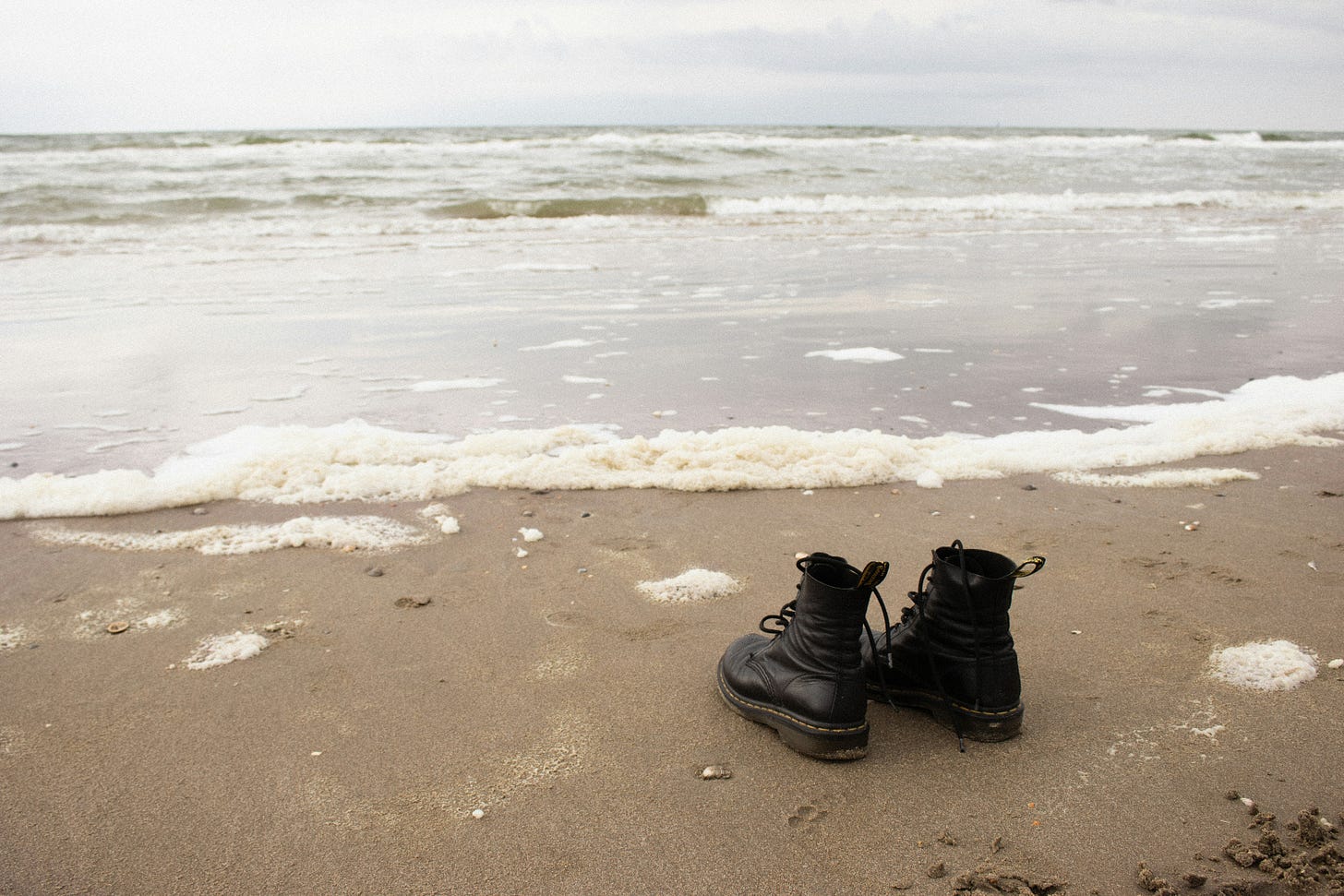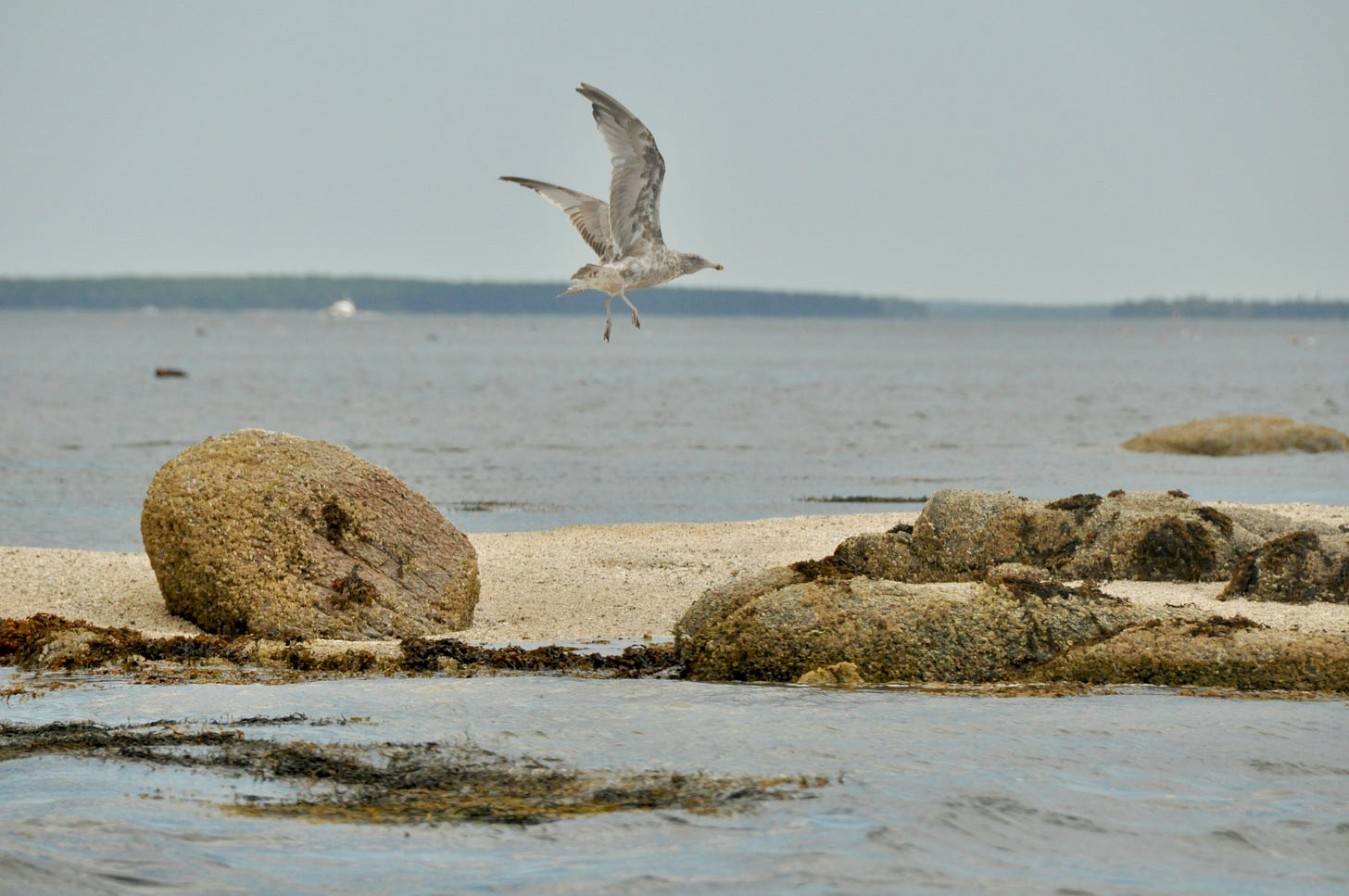I was much too far out all my life
And not waving but drowning.
There are words we can never un-hear. Lines that, without warning, announce something already imprinted on the soul. Lyrics authored by another that sing our own heart.
I will never un-know Stevie Smith’s poem, Not Waving But Drowning.
I was very young when I first heard it. That imagery so powerful - a distress signal going unnoticed. Nobody heard him, the dead man.

It was a poem my mother recounted often, the sadness of that fact only occurring to me as I write this. How little I knew and how much I assumed.
Until training as a therapist, my experience of the world was one of extreme disconnection. Much further out than people thought. I believe that was my mother’s experience also, although I was far too young to know what drowning even looked like then. I certainly didn’t know the language that could help someone swim.
Far too late in life did I understand that we are profoundly connected by longing and loneliness (oh, the irony is painful). So common it’s everywhere, yet we continue to look away. Perhaps we prefer to think battles of the head and heart to be isolated missteps into misfortune, thus we must distance ourselves from the problem. When that problem comes for us, we believe it to be different to what others experience. No one would understand. No one can help.
I’m guilty of this, for sure. My loneliness remained private my whole life, for many years hidden even from me, masquerading as something darker and more definitive.
I’d been educated to walk the social tightrope of showing up but not too much. Choosing safety in the acceptable rather than risking the exceptional.
I had an enviable life for many, and that’s not to be glossed over. But all the more reason for privacy. All the more reason for shame. In secret I was in a controlling relationship with a furious eating disorder that demanded all my time and attention. Outwardly however, I moved through the world at the confident pace of a sociopath. Internal thoughts both invisible and unfathomable to the outside world. The beast of my self-loathing untamed only behind closed doors. My body continuously ravaged by either prolonged starvation or uncontrollable binges. My stomach, only ever under or over-fed, had no clear instruction with which to function. The second brain, they call it, the gut which I abused. The instincts distracted by the stress I put it through. But then I’d go to work and live the fantasy of the woman who has it all figured out.
I share it now in the past tense, but it remained private in the present. Nobody knew, once my weight was restored, that the demons had multiplied. Even my therapist remained in the dark as I distracted her with tales of boys. It was only for me and my monsters.
There’s endless historic and ongoing research that proves we heal best through community. Yet we still tell ourselves we should go it alone. We glorify independence. ‘The Lone Wolf’, ‘The Tortured Artist’. The drowned man. Lives lost to save face.

The word recovery seems tricky. For some, even therapy prompts a raised eyebrow. We mourn the tragedy of a drowned life yet recoil in discomfort at watching someone try to swim. An admittance of weakness. A public display of reparation that only brings our attention to the mistake not the repair. We’re a tough crowd.
Let’s be honest, we choose to see weakness in those who seek help because in a way it keeps us safe. How little we know and how much we assume.
We need to know they are different to us so we remain safe. Yet the safety we deliver ourselves is packaged with a clear calling card - Never reach out, never admit you can’t swim. ..Even when you’re out too far.
We are bonded by longing. Lost in a shared loneliness, perhaps now more than ever. We see what we choose and turn away from that which we can’t face.
What does it take to admit when we’re too far out?
Why do we consistently assume there won’t be struggle for those who were never taught to swim?




Thank you for this, Hannah. It touched me deeply. I am great at being honest and open when my pain or suffering is passed, and I can share the lessons I learnt. I find it much harder in the thick of it to say actually I am struggling here, please can I have a hand.